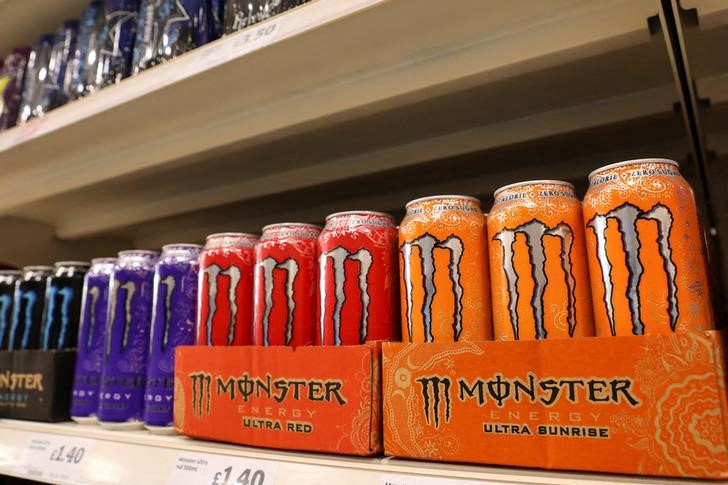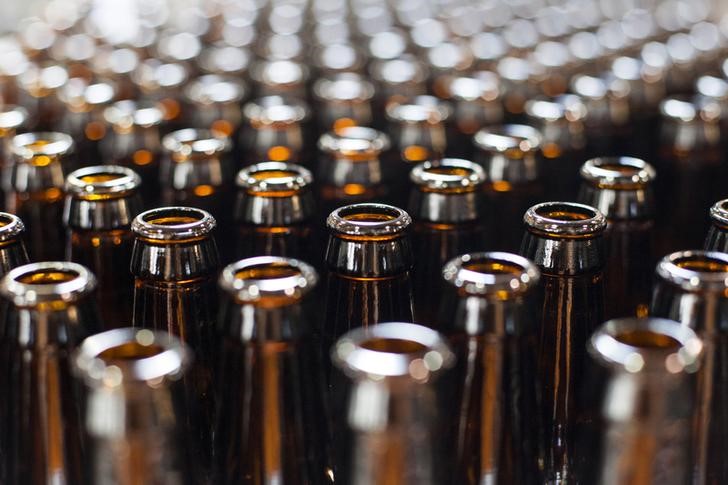(Reuters) -Energy drinks maker Monster Beverage Corp (NASDAQ:MNST) is entering the alcoholic drinks market through a $330 million deal for craft beer and hard seltzer producer CANarchy Craft Brewery Collective LLC.
The all-cash deal, announced on Thursday, extends the trend of soft-drink companies branching out to the alcohol space as traditional boundaries between the categories rapidly blur.
Coca-Cola (NYSE:KO) Co has tied up with brewer Constellation Brands Inc (NYSE:STZ) to launch Fresca-branded ready-to-drink cocktails, while rival PepsiCo (NASDAQ:PEP) Inc has partnered with Boston Beer (NYSE:SAM) Co to launch a Mountain Dew-branded alcoholic beverage.
Monster said the deal would add craft beer brands Cigar City, Oskar Blues, Deep Ellum, Perrin Brewing, Squatters and Wasatch to its portfolio but would exclude CANarchy's restaurants.
Monster, whose biggest shareholder is Coca-Cola, currently develops and markets energy drinks brands like Monster Energy, Burn Energy Drink and Full Throttle Energy Drink.
The deal is a "springboard" for Monster into the alcoholic beverage space, its co-Chief Executive Officer Hilton Schlosberg said in a statement.
"The acquisition will provide us with a fully in-place infrastructure, including people, distribution and licenses, along with alcoholic beverage development expertise and manufacturing capabilities in this industry," Schlosberg said.
CANarchy supplies craft beverages throughout the United States and 20 countries and U.S. territories and has seven manufacturing locations and 900 employees, according to its website.
The deal is expected to close in the first calendar quarter of this year.

A source told Reuters in November that Monster was discussing a merger with Constellation, but the Corona Extra and Modelo Especial maker's top boss said in a conference that the company would only engage in small bolt-on acquisitions.
"The CANarchy Craft Brewery acquisition may imply that MNST decided to go on its own in terms of alcoholic beverage manufacturing, but it may still need a larger scale alcohol distribution network," RBC Capital Markets Nik Modi said.
